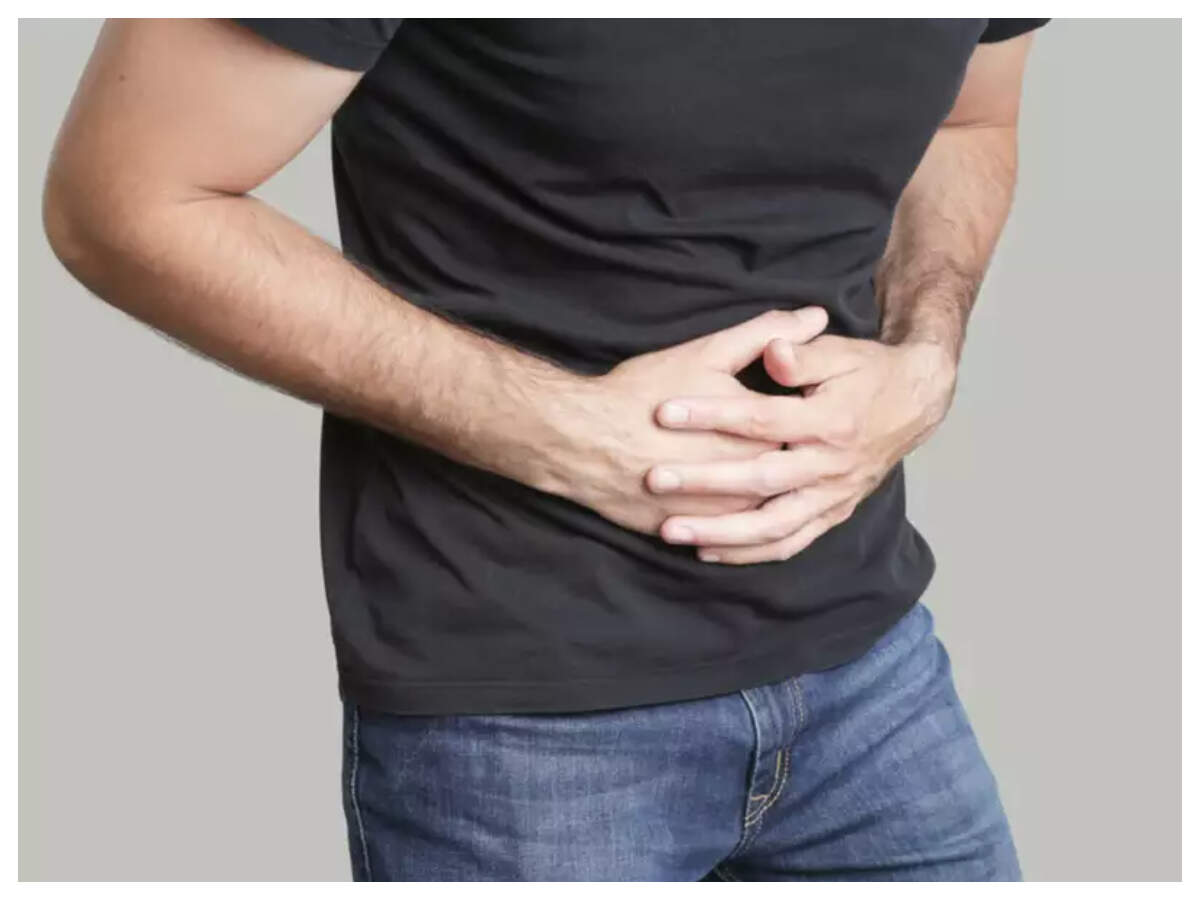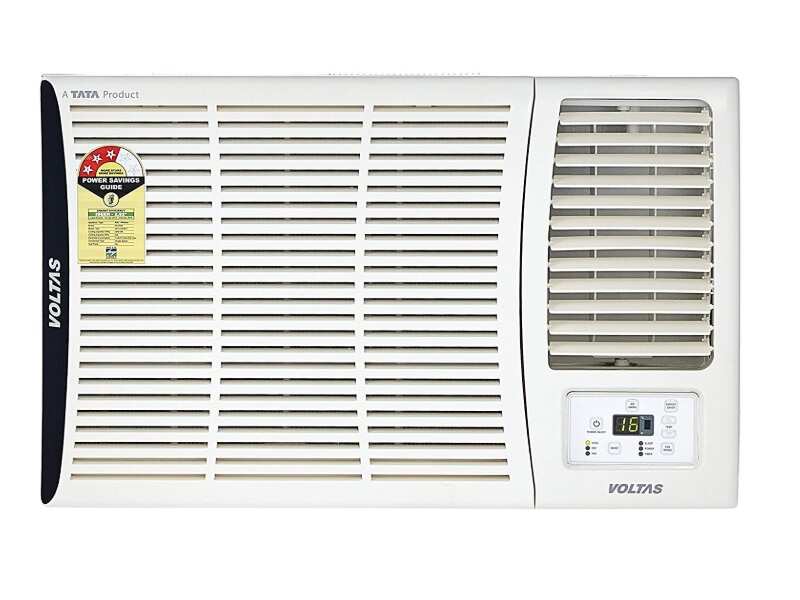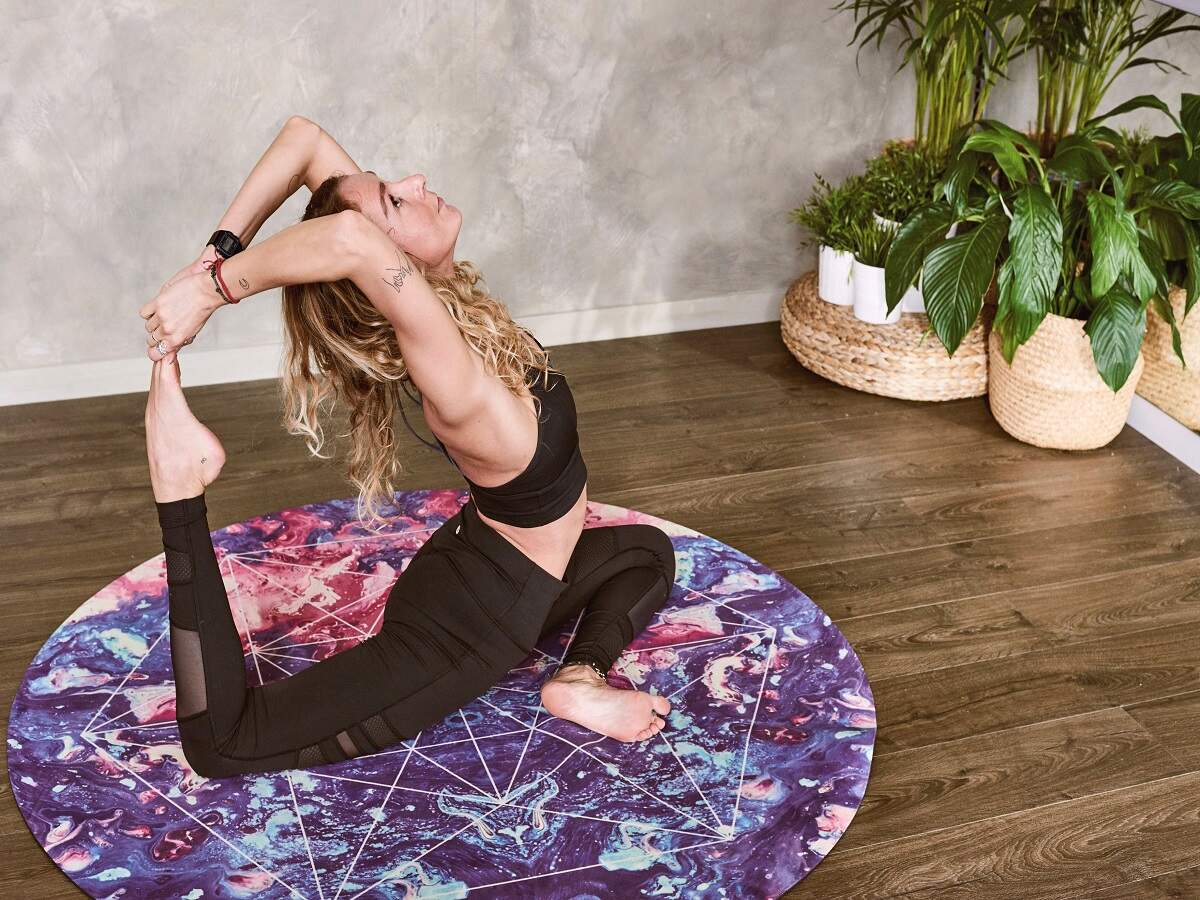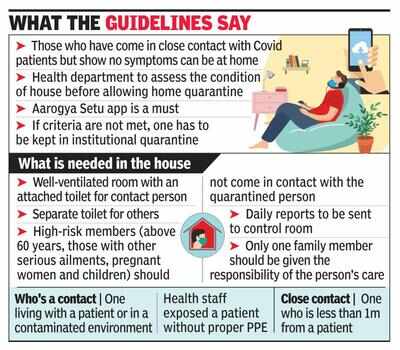
Noida/Ghaziabad: The nine government quarantine facilities in Ghaziabad with the capacity to accommodate over 1,200 people, and which were packed the last two months, now mostly lie vacant and had just 90 people across three of them as of Sunday. This is because ever since the state government allowed asymptomatic contacts of Covid patients to be quarantined at home, the health department has preferred that over the cumbersome option of putting up a large number of people in one place.
Now, only the immediate contacts of patients displaying symptoms or those who do not have separate provisions at home are being kept at these facilities, said Ghaziabad chief medical officer Dr NK Gupta. Not only is the new arrangement saving the department manpower and money required for providing food and other essentials to inmates, it has also put a brake on the embarrassing social media videos displaying the poor facilities and stale food at the government institutions, officials said.
In Noida, too, there are over 800 people under surveillance at home now, while just 200 primary high-risk contacts are lodged at two institutional quarantine centres. Most of the paid centres set up by the district administration earlier have no patients as of now. “The number of patients under surveillance at home has been increasing now after the government order. There are very few in institutional quarantine and are being regularly discharged,” said SDM Anand Srinet.
Additionally, Noida residents are also seeking government approval to allow home isolation for positive patients with mild symptoms in UP, like in other cities such as Delhi. UP does not allow home isolation of positive patients as of now.
“As the cases continue to increase, a shortage of beds can be expected in the future. In such a situation, it would be better if suspected or mildly symptomatic positive patients can be allowed to stay in home quarantine or isolation. It may also be safer and more hygienic for these asymptomatic patients to not mingle with other patients. There are several private hospitals now that are providing reasonable packages that include home care, consultation with doctors and medication,” said Rajiva Singh, president, NOFAA.
He added that doctors can remotely monitor through call or video consultation, and regularly check on patients. If a patient turns symptomatic or serious, they can be immediately shifted to an isolation centre.
“To improve the outcome, RWAs can set up a Covid task force that would come into action and provide support when someone in a society tests positive,” added Singh.
Now, only the immediate contacts of patients displaying symptoms or those who do not have separate provisions at home are being kept at these facilities, said Ghaziabad chief medical officer Dr NK Gupta. Not only is the new arrangement saving the department manpower and money required for providing food and other essentials to inmates, it has also put a brake on the embarrassing social media videos displaying the poor facilities and stale food at the government institutions, officials said.
In Noida, too, there are over 800 people under surveillance at home now, while just 200 primary high-risk contacts are lodged at two institutional quarantine centres. Most of the paid centres set up by the district administration earlier have no patients as of now. “The number of patients under surveillance at home has been increasing now after the government order. There are very few in institutional quarantine and are being regularly discharged,” said SDM Anand Srinet.
Additionally, Noida residents are also seeking government approval to allow home isolation for positive patients with mild symptoms in UP, like in other cities such as Delhi. UP does not allow home isolation of positive patients as of now.
“As the cases continue to increase, a shortage of beds can be expected in the future. In such a situation, it would be better if suspected or mildly symptomatic positive patients can be allowed to stay in home quarantine or isolation. It may also be safer and more hygienic for these asymptomatic patients to not mingle with other patients. There are several private hospitals now that are providing reasonable packages that include home care, consultation with doctors and medication,” said Rajiva Singh, president, NOFAA.
He added that doctors can remotely monitor through call or video consultation, and regularly check on patients. If a patient turns symptomatic or serious, they can be immediately shifted to an isolation centre.
“To improve the outcome, RWAs can set up a Covid task force that would come into action and provide support when someone in a society tests positive,” added Singh.

Coronavirus outbreak
Trending Topics
LATEST VIDEOS
City
 Noida: 'Disturbed' man throws three-month-old daughter out of window
Noida: 'Disturbed' man throws three-month-old daughter out of window  Shocking: Teen in UP given electric shocks, burned with molten wax over suspicion of theft
Shocking: Teen in UP given electric shocks, burned with molten wax over suspicion of theft  Major fire at plastic godown near Nagpur's Bohra Masjid Itwari
Major fire at plastic godown near Nagpur's Bohra Masjid Itwari 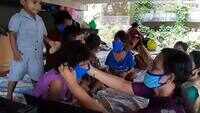 Unique classroom under a bridge: Teachers give lessons to kids of migrant labourers in Kochi
Unique classroom under a bridge: Teachers give lessons to kids of migrant labourers in Kochi
More from TOI
Navbharat Times
Featured Today in Travel
Quick Links
Kerala Coronavirus Helpline NumberHaryana Coronavirus Helpline NumberUP Coronavirus Helpline NumberBareilly NewsBhopal NewsCoronavirus in DelhiCoronavirus in HyderabadCoronavirus in IndiaCoronavirus symptomsCoronavirusRajasthan Coronavirus Helpline NumberAditya ThackerayShiv SenaFire in MumbaiAP Coronavirus Helpline NumberArvind KejriwalJammu Kashmir Coronavirus Helpline NumberSrinagar encounter
Get the app
